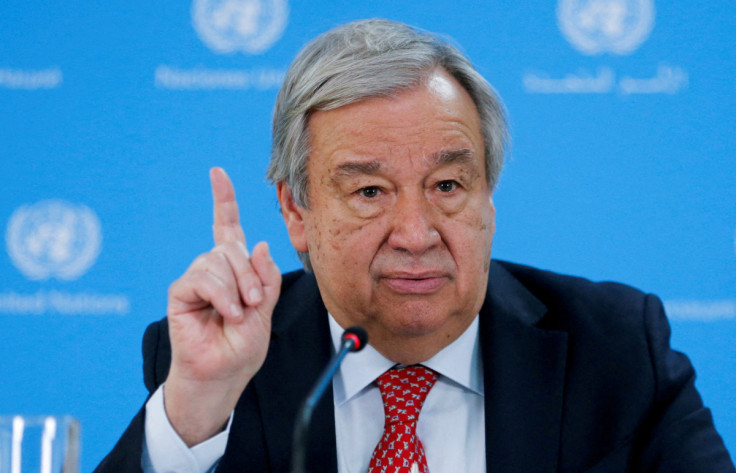UN Chief Calls For Acceleration Of Black Sea Grain Deal Exports

United Nations Secretary-General Antonio Guterres called for an acceleration of Black Sea grain shipments from Ukrainian ports under a deal allowing safe wartime exports, a U.N. spokesperson said on Tuesday as Russia threatens to quit the pact next month.
The United Nations and Turkey brokered the Black Sea Grain Initiative with Russia and Ukraine in July 2022 to help tackle a global food crisis worsened by Moscow's invasion of its neighbor and blockade of Ukrainian Black Sea ports.
But food exports "have dropped significantly from a peak of 4.2 million metric tonnes in October 2022 to 1.3 million metric tonnes in May, the lowest volume since the Initiative began last year," said deputy U.N. spokesperson Farhan Haq.
Guterres was disappointed by a slowing pace of ship inspections and the exclusion of Pivdennyi (Yuzhny) port - one of three Ukrainian ports covered by the Black Sea export deal.
"The Secretary-General calls on the parties to accelerate operations and urges them to do their utmost to ensure the continuation of this vital agreement, which is up for renewal on 17 July," Haq said in a statement.
Russia's President Vladimir Putin said last week that Russia was considering withdrawing from the Black Sea grain deal.
The Black Sea deal also allows for ammonia shipments, but none have happened. Russia used to pump up to 2.5 million tonnes of ammonia annually to Pivdennyi port for global export. But the pipeline was shut down by the war and earlier this month Moscow accused Ukrainian forces of blowing up part of the pipeline.
Restarting the pipeline was one of several Russian demands made in talks to extend the Black Sea grain deal. Last month it began stopping vessels traveling to Pivdennyi port under the Black Sea grain deal until the ammonia pipeline was restarted.
To convince Russia to agree to the initiative, a three-year pact was also struck in July 2022 in which the United Nations agreed to help Moscow overcome any obstacles to its own food and fertilizer shipments.
While Russian exports of food and fertilizer are not subject to Western sanctions imposed after the invasion of Ukraine, Moscow says restrictions on payments, logistics and insurance have amounted to a barrier to shipments.
The U.N. has confirmed that it cannot do anything to address some of Russia's central grievances, the state TASS news agency cited Russia's Foreign Ministry as saying on Tuesday.
Haq said the United Nations was "fully committed" to supporting the implementation of the Black Sea Grain Initiative and the pact to facilitate Russia food and fertilizer exports.
"This is especially critical now as the new grain harvest begins in both Ukraine and the Russian Federation," he said.
© Copyright Thomson Reuters 2025. All rights reserved.





















